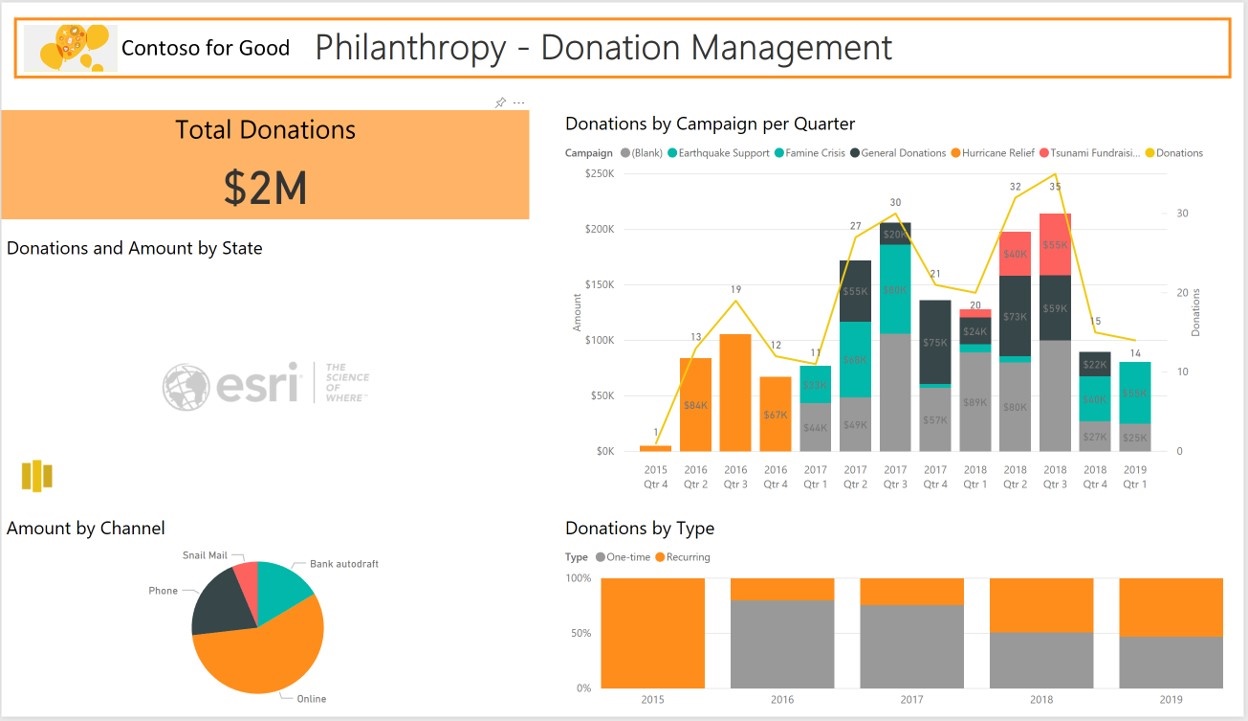The Power of Data in the Nonprofit Sector
Nonprofit organizations play a critical role in addressing societal issues, from poverty alleviation and education to healthcare and environmental conservation. These organizations rely on donations, grants, and volunteers to fuel their efforts. To effectively fulfill their missions and maintain the trust of their stakeholders, nonprofits must operate efficiently, allocate resources wisely, and demonstrate measurable impact. This is where business intelligence enters the picture.
What is Business Intelligence (BI)?
BI encompasses a set of technologies, processes, and tools that transform raw data into meaningful insights, enabling organizations to make informed decisions. While BI has long been associated with the corporate world, its potential in the nonprofit sector is equally profound. By harnessing the power of BI, nonprofits can gain a deeper understanding of their operations, donors, beneficiaries, and the overall impact of their work.
Benefits of BI for Nonprofits
Data-Driven Decision-Making: BI tools enable nonprofits to collect, analyze, and visualize data from various sources. This empowers them to make data-driven decisions, which can lead to more efficient resource allocation and program improvements.
Donor Engagement: Understanding donor behavior and preferences is crucial for nonprofits. BI can help organizations segment donors, tailor their outreach efforts, and build stronger relationships with supporters.
Fundraising Effectiveness: Nonprofits rely on fundraising to sustain their operations. BI can provide insights into the performance of fundraising campaigns, helping organizations identify what works and what needs improvement.
Impact Measurement: One of the greatest challenges nonprofits face is demonstrating their impact. BI tools can track key performance indicators (KPIs) and provide visual representations of progress, making it easier to communicate successes to donors and stakeholders.
Real-Life Applications of BI in Nonprofits
Let’s explore a few real-life examples of how BI is making a difference in the nonprofit sector:
- World Food Programme (WFP): The WFP, a United Nations agency, uses BI to track food distribution in crisis zones. By analyzing data on food shipments, storage, and delivery times, the WFP can respond more efficiently to emergencies and ensure that aid reaches those in need.
- Donor Management: Many nonprofits use BI tools to manage their donor databases effectively. These tools help identify donor trends, track giving patterns, and personalize communication with supporters.
- Program Evaluation: BI can assist nonprofits in evaluating the effectiveness of their programs. By analyzing data related to program outcomes, participant feedback, and resource allocation, organizations can make data-driven decisions to improve their initiatives.
- Environmental Conservation: Conservation organizations use BI to monitor and analyze data related to environmental changes, wildlife populations, and habitat health. This information helps them develop targeted conservation strategies.
Challenges and Considerations
While BI offers numerous benefits to nonprofits, there are challenges to consider:
Data Quality: To derive meaningful insights, nonprofits must ensure data accuracy and integrity. This may require investing in data cleaning and validation processes.
Data Privacy: Nonprofits often handle sensitive data, such as donor information. It’s crucial to prioritize data security and compliance with relevant regulations, such as GDPR or HIPAA.
Resource Constraints: Smaller nonprofits may lack the financial and human resources required to implement BI systems. However, there are cost-effective BI solutions available, and organizations can seek grants to support their efforts.
Training and Capacity Building: Staff members may need training to effectively use BI tools. Nonprofits should invest in building data literacy among their teams.
Conclusion
In an era where data is abundant, nonprofits have a unique opportunity to harness the power of business intelligence to maximize their impact. From enhancing donor engagement to measuring program effectiveness and making data-driven decisions, BI can be a game-changer for nonprofit organizations. As the nonprofit sector continues to evolve, those that embrace data-driven strategies are better positioned to create lasting change and achieve their missions. By investing in BI, nonprofits can take significant strides toward creating a better world for all.


